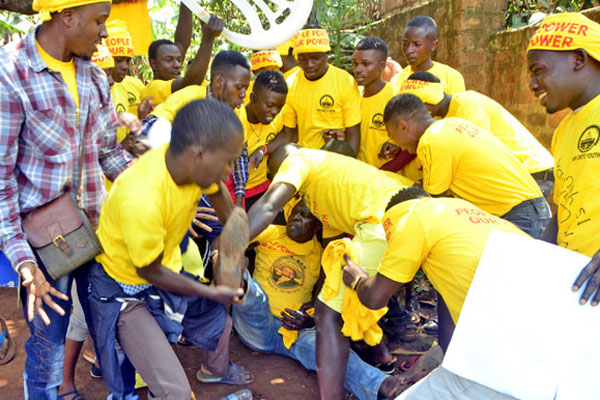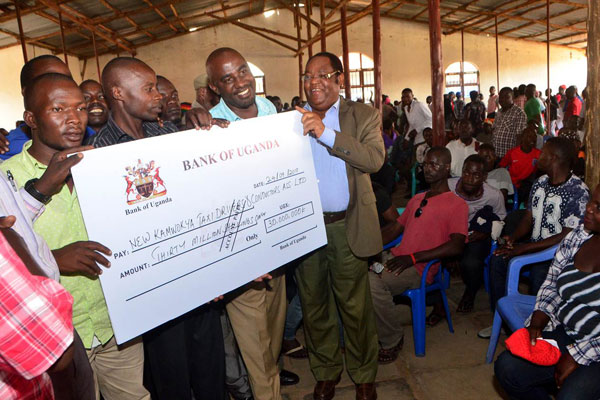Cabinet endorses Museveni's donation budget
What you need to know:
- The president's welfare fund will reportedly be injected in poverty alleviation focusing on model villages and demonstration farms.
- Mr Museveni in a statement issued in November last year defended his donations, arguing that he cannot live comfortably in the neighbourhood of poor people without doing something about them.
Cabinet has resolved that Parliament should continue allocating money to the president's welfare fund. This is the fund that the president uses to deliver financial pledges.
There has been concern from civil society over reduction of funding for the Youth Livelihood Fund implemented by Ministry of Gender, Labour and Social Development in the planning for the 2019/20 financial year and creation of a vote for a Youth Fund under State House.
The creation of the Shs130 billion Youth Livelihood Fund under State House has resulted into the reduction of Gender Ministry funding from Shs 66.6 billion in the 2018/19 financial year to Shs 4.62 billion in the 219/20 financial year.
Civil Society Budget Advocacy Group (CSBAG) in a statement said the fund under State House risks being mismanaged.
"It is notable that State House doesn't have the required expertise to completely over see this youth programme. It opens risks to politicization of the programme. Lastly, State House operations are almost beyond public scrutiny and has limited Parliamentary oversight," CSBAG said in a statement published on Tuesday.
However, while addressing journalists on the cabinet resolutions, Mr Ofwono Opondo, the Director Uganda Media Centre Director, said the cabinet decision was informed by public discussions, which have been calling for the abolition of the president's welfare fund.
Mr Opondo said cabinet resolved that Museveni should continue getting money for donations because various government programmes implemented by ministries can't reach all Ugandans.
When president is moving around the country and is approached by people with various requests, Opondo said Museveni can't just shrug away or send them to ministries.
"Obviously it has been a matter of concern in the public and may be some people could have been thinking that this should be phased. This was tabled in cabinet and cabinet has endorsed it. They agreed that Parliament should continue allocating money under the welfare vote to State House, to the President because the various government interventions cannot reach everybody and also because whenever the president is moving around, there are people who accost him with direct requests but he cannot tell them to go to various ministries or agencies for help. Therefore, yesterday, Cabinet endorsed that this money should continue to be given to the president for those interventions,” Mr Opondo said.
The president's welfare fund will reportedly be injected in poverty alleviation focusing on model villages and demonstration farms.
Mr Museveni has established four demonstration farms, which he uses to teach local communities how to embrace modern farming.
Related stories
The money will also be invested in skilling the girl child, a State House programme, which has gained prominence in the past two years. Girls are trained in vocational studies and given seed equipment after graduation.
Mr Opondo said the fund will also be used to support youth groups through provision of common user facilities and startup capital. The president since mid-2018 has been donating money and equipment to various youth groups in Kampala.
Mr Museveni in a statement issued in November last year defended his donations, arguing that he cannot live comfortably in the neighbourhood of poor people without doing something about them.
“Operationally, it was easier to tackle, first, your neighbours. There is also a moral question. Your chances of going to heaven may be compromised if you have beneficial knowledge but you do not pass it on to your neighbours. As a matter of faith, I cannot live comfortably in the neighbourhood of poor people without doing something about them. That brings me to Kampala. I have lived on this earth for 74 years now. Thirty two (32) of those have been in the Kampala-Entebbe area,” Mr Museveni said is a statement her termed as ‘Clarification on the confusion surrounding the youth programmes.’







